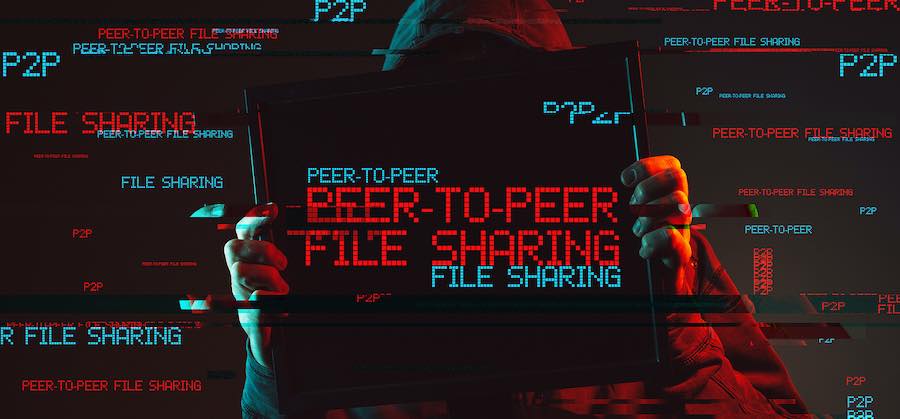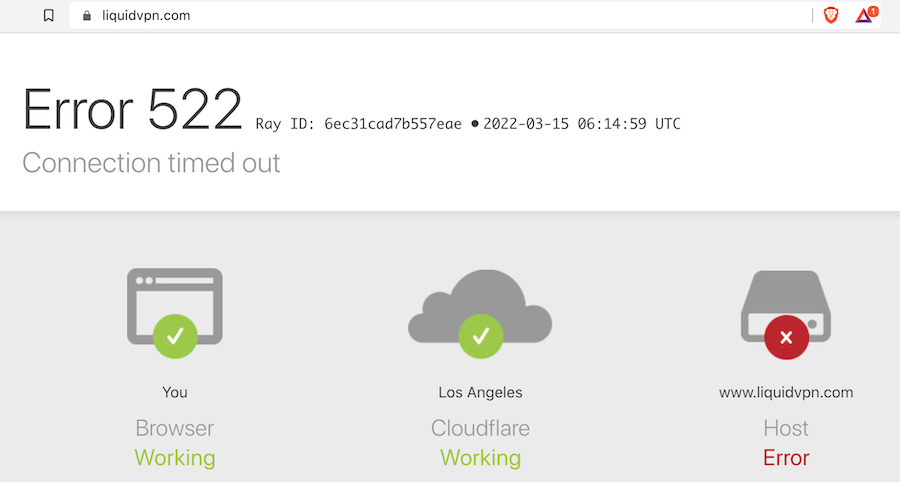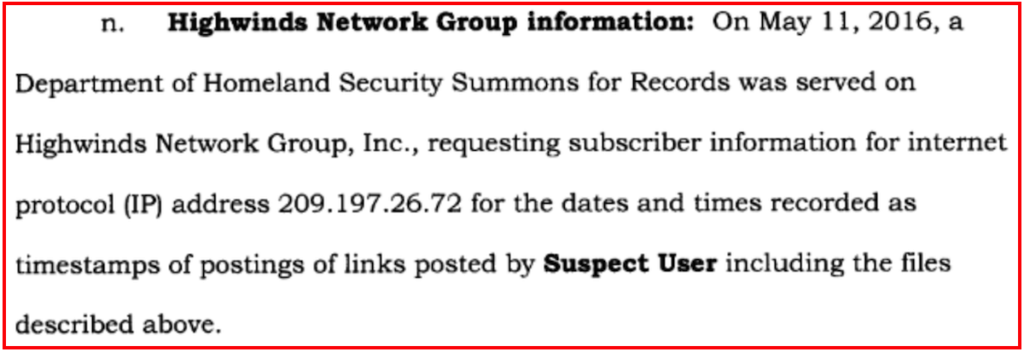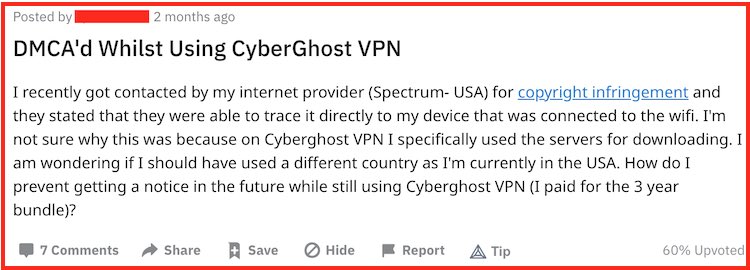
Updated on June 2023 with new information.
TorGuard, a US-based VPN provider, has been sued in court over copyright violations that occurred on its network. Similar court cases shut down LiquidVPN in 2021, and also forced VPN Unlimited to block torrenting traffic earlier this year. For years we have warned that US-based VPN providers, and by proxy their users, are targets for copyright lawsuits and can be adversely affected.
Using a good VPN is critical when torrenting, wherever you happen to reside in the world. While torrenting is perfectly legal in most jurisdictions, it also comes with risk. For one, you need to be careful about what you torrent and whether the media is copyrighted. While we do not recommend breaking any laws, it is smart to always use a VPN when torrenting to be safe.
Unfortunately, not just any VPN will do when it comes to torrenting, and recent court cases prove why. This also illustrates a disturbing trend of increasing litigation against US VPN providers.
TorGuard was targeted by over two dozen different film studios seeking damages. They allege that the VPN enabled and encouraged piracy through its VPN infrastructure, policies, and marketing.
TorrentFreak was able to obtain the court documents to the case, which you can view here. In these documents, we see how TorGuard has agreed to block BitTorrent traffic on its servers in the United States.

This same group of filmmakers has also gone after Quadranet, a web hosting provider that also leased servers to TorGuard.
In TorGuard’s defense, it seems that copyright holders are getting more aggressive. And I’m sure TorGuard did everything they could to fight the lawsuit and protect their users.
Unfortunately, being a VPN that operates in the United States also exposes you to the US court system, US copyright holders, and costly legal battles.
Other US VPN providers are also getting sued
Just last year, LiquidVPN, another US-based VPN provider, was hit with a $10 million lawsuit over copyright violations conducted on its network. As explained in an article by ARS Technica last year, LiquidVPN was on the hook for millions in damages:
According to court documents, movie production firms argue LiquidVPN should not be extended “safe harbor” protections, as the defendant didn’t establish a repeat-infringer policy or appoint a registered DMCA agent. The ask for $9,900,000 comprises the maximum statutory damage amount of $150,000 for each of the 66 works listed in the complaint. Additionally, $1,650,000 has been sought against LiquidVPN for “secondary liability as to DMCA violations.”
Shortly after the court case concluded, LiquidVPN’s website went offline.
Similarly, VPN Unlimited, based in New York, was also hit with a massive lawsuit. TorrentFreak covered the case here, and the result was similar:
- Torrenting is blocked on all US servers
- Access to torrent sites, including YTS, The Pirate Bay, RARBG, 1337x, and several proxies, are blocked
How does this affect TorGuard users now?
For one, TorGuard users will no longer be able to use any TorGuard VPN server in the United States for BitTorrent traffic. This could result in slower torrenting speeds as people in the US will need to use servers in other countries.
TorGuard also issued a statement on its website here claiming that the privacy and security of its users will not be affected, but it will be forced to block torrenting traffic on US servers.
Some YouTube personalities claim that TorGuard users are still able to torrent on US servers. Nonetheless, according to TorGuard itself, their policy is to still block torrenting on US servers.

Furthermore, I’ve also seen people recently commenting that torrenting is still blocked on US servers, but allowed on servers in other countries:

At the end of the day, you are better off just using a reliable VPN for torrenting that does not have a policy to block torrenting on US servers.
The many risks of using US-based VPN providers for torrenting
Now let’s consider the risks of using US-based VPN services for torrenting.
Risk 1: Your VPN shuts down
This could happen if your VPN is hit with a lawsuit by copyright holders and becomes insolvent overnight. This, of course, renders your VPN subscription worthless. This appears to be what happened with LiquidVPN just last year. This well-known VPN provider literally vanished with its website returning a 522 timeout error:

This risk is real as these lawsuits continue with increasing frequency.
Risk 2: Your torrenting traffic is restricted, along with slow speeds
This is a risk that can also come in many forms:
- Torrenting traffic could be completely blocked on every server in the VPN’s network. This is the case with some VPNs that don’t want to deal with court cases and angry copyright holders.
- Torrenting traffic could be blocked in specific countries, such as the United States.
- The VPN may select only a few servers (from the entire network) for torrenting, which could lead to traffic congestion and limited bandwidth.
- Due to blocks and restrictions, torrenting with your VPN becomes slow. This could easily be the case if you need to use VPN servers that are located far away from your physical location. Additionally, if the network is restricted, it could force more torrent users on fewer servers, leading to limited bandwidth and slow speeds.
Risk 3: The VPN could be forced to log users as part of a criminal investigation
Before you dismiss this as far-fetched, let’s rewind a bit and consider the IPVanish logging case from a few years ago.
If you think that a “no logs” VPN operating in the US cannot be forced to log your activities for a criminal investigation, think again.

IPVanish, a longstanding “no logs” VPN service, not only complied with these logging requests, they also did not alert any of their users about the situation. The case only came to light when the court documents were released.
If a VPN has to choose between shutting down, going into a legal battle, or cooperating with logging demands, it may just choose to remain in business rather than go down with the ship. Results may vary.
Risk 4: You, the VPN user, could become the target of a lawsuit
It’s not entirely clear how likely this scenario is, and we are not lawyers, but consider these factors.
Movie and music companies have been more than willing to target individuals over the years who they were able to identify and catch.

We can expect this trend to continue as copyright holders are becoming more aggressive in their lawsuits. The blood is in the water.
So if a VPN was somehow forced to log users, and this information was provided to filmmakers as part of a settlement or a criminal investigation, then this could mean that VPN users themselves could become targets.
Also consider that there are various websites that are logging torrent activity all the time and this information is available to everyone. One example of this is I Know What You Download.
Media companies will also join torrent swarms to collect IP addresses of individuals torrenting copyrighted material. You also need to remember that it only takes one small leak to expose your identity to media companies, which is why you should periodically test your VPN for problems.
I’ve seen people complaining about DMCA notices when using other VPN providers. Here’s one example:

Of course, there is always the risk that people do not properly configure a VPN with the VPN kill switch, so who knows who is at fault with all of these cases.
So where does this leave us today?
Be smart and use a VPN in a safe jurisdiction
Here at RestorePrivacy, we write for a global audience and never recommend anyone break the laws in their country. With that being said, you still need to be smart.
Torrenting can be a grey area depending on where you live. Consequently, you will always want to use a good VPN for torrenting that is based in a safe jurisdiction. This means that your VPN is not operating under US laws.
However, we also see similar developments in Canada. This could affect torrenting with Canada VPN services, so proceed with caution.
Finally, you should also know that the United States is simply a risky jurisdiction with a long history of privacy abuses. For an in-depth look at why, along with other concrete examples, check out our article on the 5 Eyes surveillance network.







Other US VPN providers, including TorGuard, have entered into confidential settlement agreements with the movie studios that sued them.
The opaque nature of those agreements is cause for serious concern. Such an agreement could require a back-door for content producers to get user IP addresses in real-time. It could provide for packet sniffing capabilities for content producers or their agents. None of that would run counter to claims by the VPN provider that they do not keep logs, had not received warrants, were not providing information to law enforcement, etc.
Lawyers don’t have to make an entire settlement agreement confidential in order to keep private how much money was paid, and to whom. If the whole thing is confidential, that is cause for serious concern.
I would strongly recommend that you recommend that users not sign up with any VPN provider that is operating under one or more confidential settlement agreements. At the very least, the VPN ratings should include that as a major “con” point.
If Intel and AMD both build a back door into their processors, then is any of this really that important? The Intel ME_Cleaner is only able to partially disable ME functionality, and as long as you can’t build a full PC using an alternative architecture, then you cannot have genuine privacy so long as you choose to connect to the internet. But at the same time, connecting to the internet is needed because every phone call and text message is monitored. Is there a proper hardware solution to build these software tools on top of?
@Handy If only we could build a time machine. That’s about as likely as AMD & Intel building a backdoor into their processors.
Hi Sven,
I really like the new way RP has categorised the guides on the home page.
BoBeX
This case proves that Torguard does not keep logs like they claim, that is the reason why they must block torrents, if they kept logs they could easily defend themselves by saying that have a way to track down users downloading pirated films.
How many secure vpn services are there that provide custom dns? I use nextdns but I couldn’t integrate it into vpn. Is there an article about it? Also, most vpn services have analytics, does this cause problems like nordvpn?
Every VPN we recommend here runs their own encrypted DNS. Do not use a third-party DNS when you can just use your VPN’s DNS.
1) The third-party DNS service could be logging every website you visit (and selling the data to others). This is the case with many of the large third-party DNS services we have looked at.
2) Using a third-party DNS could cause DNS leaks with your VPN. Bad idea.
3) There’s no point to it. If you are using a good VPN service, you should also be using their DNS. Just connect to a VPN server and everything will be taken care of.
No, website analytics are not a problem and analytics is necessary for anyone who wants to run a website and actually know what’s going on with people who visit the site. As site operators, we know this. If it bothers you, can use something like uBlock Origin and then simply block the analytics when you visit the site. And keep in mind that the VPN service itself (the VPN infrastructure) does not have analytics, just the website.
Hi Sven,
A note, custom dns filtering appears to be a growing interest to users.
I don’t know why VPN tech companies can’t build this into their tools?
Regards,
BoBeX
The US based vpn providers will simply switch off p2p in the US for the US. Are you saying that if Torguard wasn’t based in the US, and let’s say was based in Panama, then the case would have to be in Panamanian court to block toreenting on US servers would be complied with, otherwise it wouldn’t happen, the case wouldn’t get to court? Am I getting this right?
That is correct. Offshore VPN providers are not in any way obligated to comply with US copyright laws. Now, the data center where the VPN rents a server, in Texas for example, may get some heat if VPN users are torrenting copyrighted material on the VPN server that is rented in the data center. This does happen, and it may end up that the VPN is no longer allowed to use servers in that data center. But the offshore VPN does not have to deal with any US court or US copyright claim.
Good to know. And just to be clear, torrenting is not the same as streaming, yes?
Also, if a VPN is based in, say, Switzerland, but they have servers in the US, can’t those servers stateside still be seized by the Feds?
Correct, torrenting is actually downloading files, while streaming is not. However, I have also seen news reports about how media companies want to target people using third-party streams for copyright violations, just as if they downloaded files illegally.
Yes, servers can be seized anywhere at any time. This is why it is important to use a reputable VPN that properly secures their servers. If this is the case, server seizures are no big deal and no customer data is affected. This is why NordVPN, ExpressVPN, Perfect Privacy, Surfshark, and others run all servers in RAM-disk mode, which leaves no customer data whatsoever available on any server.
However, if a VPN does not properly secure servers, and those servers are seized, then you get a situation like the Windscribe security incident last summer. Here, Windscribe left their servers fully unencrypted, and then when the server was seized, the authorities obtained Windscribe’s private key.
Thanks!